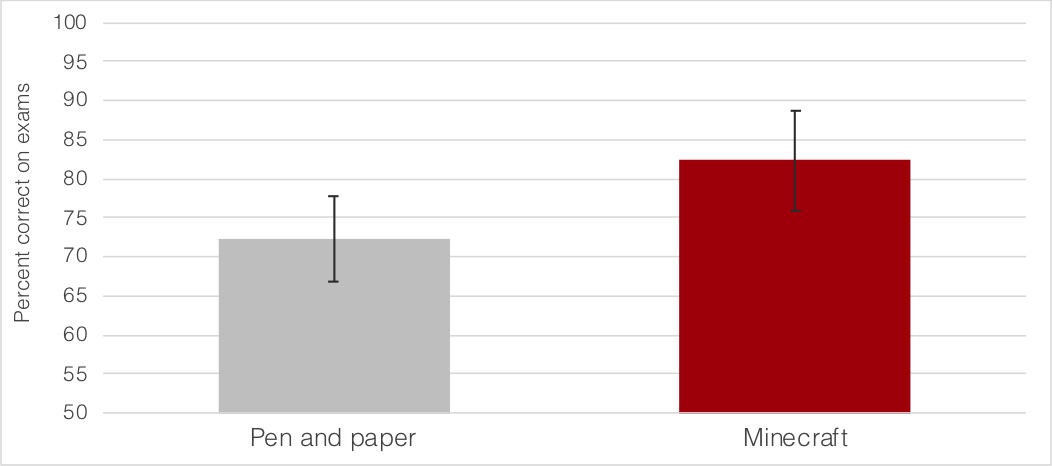What are the Benefits of a Virtual Lab?
Using Minecraft for virtual interactive learning led to better exam performance than traditional homework. |
Materials and Their Processing for Mechanical Engineers
Mechanical engineering courses tackle problems that involve visual-spatial components, sometimes at the molecular level. Without access to a physical lab space, traditional classrooms may not be optimal environments for practicing the visualization skills involved in solving those problems. To fill this gap, and to reinforce students’ learning about material properties, Jayan implemented a virtual lab within the computer game, Minecraft. Minecraft enables players to experiment with a variety of materials in a three-dimensional simulated world. Jayan leveraged the technology of Minecraft to create a hands-on, immersive, learning environment for her students where they could physically see and spatially manipulate materials and their properties.
Jayan distributed these Minecraft labs evenly throughout the semester for approximately half of the course’s topics. She assessed learning across three exams and compared performance on content practiced in Minecraft labs to performance on content practiced in traditional pen and paper formats. For the fourteen students in the course, mean exam scores on the Minecraft content were significantly higher than the mean scores on pen and paper content. These results suggest that the use of virtual labs in Minecraft may significantly enhance student learning in materials science.

Scores on exam questions were higher when students learned via Minecraft labs (M = 82.32, SD = 11.01) versus pen and paper formats (M = 72.28, SD = 9.51). Error bars are the 95% confidence intervals for the means. The mean difference of 10.04 was significant, 95% CI [14.19, 5.88], t (13) = 4.28, p < .01, d = .93.
Filters in which this Teaching as Research project appears:
College: College of Engineering
Course Level: Advanced Undergraduate
Course Size: Small (fewer than 20 students)
Technology Enhanced Learning
